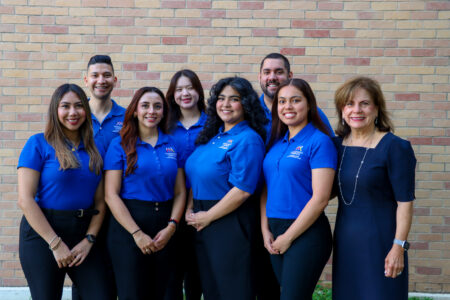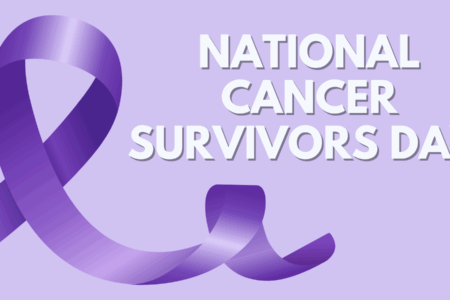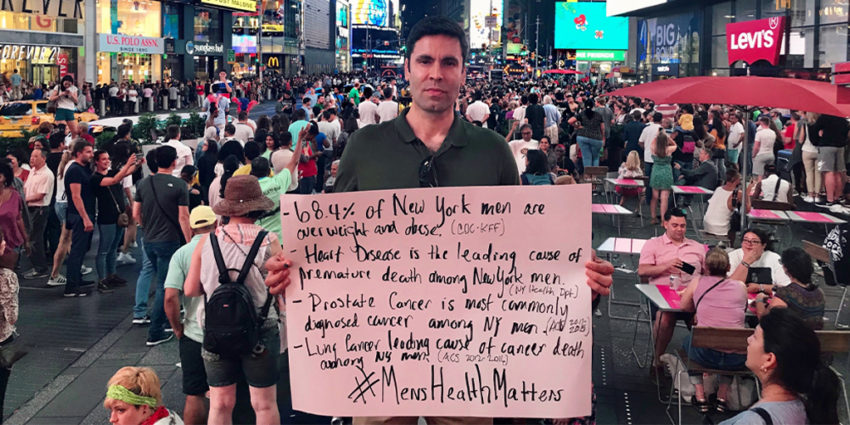
Share On Social!
Nine-thousand miles.
That’s nearly the number Gabe Canales, founder of Blue Cure—a prostate cancer support and awareness group—traveled earlier this year. He took this journey to advocate for something he believes is too essential to overlook: Promoting men’s health.
Before beginning this advocacy road trip, Canales struggled with his own life-changing, adverse health experience — in 2010, he was diagnosed with prostate cancer.
“I really wasn’t concerned at all with my health or other men’s health before then,” Canales said. “Sadly, it sometimes takes a person getting sick for them to look at their own health. There were some other factors after that led me to be very driven to do something for men’s health issues overall.”
A Cancer Diagnosis Too Soon
At 35 years old, Canales’ life was on a positive trajectory.
He ran his own marketing company with big-name clients. He was living, successfully, in one of the largest cities in the country. Most of all, Canales thought he was healthy.
“I was really just very busy advising my clients and going to social events,” Canales said. “Health concerns weren’t really on my radar—I thought I looked fine, I thought I felt fine—I just decided to go get a checkup. I can’t really recall what prompted me to get a checkup, [because] I didn’t get annual checkups. So, I went and got a checkup, and the doctor said that I was fine, but he encouraged me to go to a urologist because my testosterone levels were slightly low.”
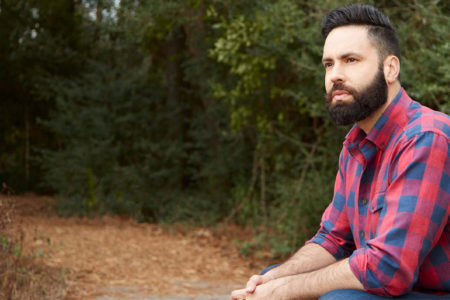
From there, he visited several doctors. Eventually, Canales came to find that he was, in fact, not OK. Unfortunately, the opposite was true.
“I got a phone call,” Canales said. “It was a phone call from the doctor, and he said, ‘I’ve got some good news, and I’ve got some bad news. The bad news is you have cancer; the good news is you’ll be fine.’ I stopped in my tracks, and the first thought that came to my mind is, ‘Am I going to die?’ That’s immediately what I started thinking.”
Despite the doctor’s assurances, Canales was unsure of how things might play out. Throughout 2010, cancer seemed to be creeping into his life at a steady pace.
“Now why I thought that was because the year I was diagnosed with cancer, there were five people in my life that were diagnosed with some form of cancer — all younger people, too. One of them was a really good friend of mine, and she passed away shortly after.
“I was scared. I was really scared.”
While there have been health complications in his family history, Canales said his prostate cancer diagnosis came as a complete shock.
Still, he said that there is a general lack of urgency in most men concerning their health, which he says could’ve contributed to his delay in diagnosis.
However, shock and fear didn’t stop Canales from living or taking action.
There wasn’t an easy road ahead, but it was one that would lead Canales to change the course of his personal, professional life.
Cancer Recovery and Life Dedication
As a way to deal with the mental, physical consequences of prostate cancer, Canales began a Facebook page that served as an online journal documenting his experiences.
What started as a way to keep his online following updated on his cancer journey, began to form into a movement. 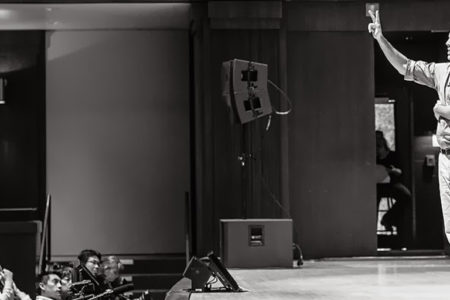
It was at this time that Canales realized this was the start of something significant. The community grew to have thousands of followers, transparently discussing individual journeys every day, according to Canales.
From there, he would go on to build an online community of cancer advocates, which would lead him to start his nonprofit. He gained national attention, too.
After being featured in a Forbes article about social media’s influence on social change, Canales realized his opportunity to keep the ball rolling.
“One day, and it was around that time I decided I wanted to start Blue Cure, because of this message of lifestyle interventions to prevent or reduce a man’s risk of getting prostate cancer — I didn’t hear that message anywhere,” Canales said. “As well as improving outcomes once you’ve been diagnosed, I didn’t hear that message anywhere. So, I felt like I wanted to use my gifts and talents as a PR, marketing guy, and channel that toward getting this message out there in seeking change.”
Throughout his time with cancer, Canales said this community kept him going — the drive forward. As he aimed to help others, his hardships began moving in a positive direction.
Eventually, despite living with the illness to this day, Canales learned he would be able to continue surviving his early-stage, non-aggressive prostate cancer through lifestyle interventions. One of his main interventions? Nutrition. He says it’s one of the best ways to remain healthy and reduce risks of major problems, such as cancer.
Still, that information wasn’t enough. He still felt a hole in his life, as if there was something greater he needed to do.
He notes that, unfortunately, many contributing factors go into why men might not be as concerned with their health as they should, especially in the Latino community.
“I think you have a few [issues] there,” Canales said. “You have familial issues. Latino men are very proud, and so going to the doctor was really never emphasized. Overall, I think you have you have some challenges of gender norms. In society, women are encouraged at a much younger age to start getting checkups at the doctor’s office.”
Now, Canales spends most of his time working to change the lack of importance men place on their health.
He does this through online Blue Cure campaigns, community partnerships, and numerous awareness efforts. Moreover, his work has expanded to promoting more than just prostate cancer awareness.
Canales aims to tackle this subject from a holistic point of view.
Through all his work, Canales aims to improve the cultural mindset men have about their health, mainly, encouraging them to take active responsibility in it.
“I’ve always looked for ways to teach people and to educate people,” Canales said. “I’m going to be doing a lot more of that going forward.”
Road Trip for Cancer, Health Awareness
Canales isn’t someone who can live in stagnation.
Despite creating a national awareness organization that has partnered with notable figures, professional athletes, and national icons, Canales said he wanted to do something that would capture people’s attention.
So, he thought what better way to spread a message than actually engaging people where they were at — physically.
He would go on to travel across the country, stopping in numerous major metropolitan areas, meeting with community leaders, joining local newscasts, and spreading information about significant issues impacting men’s health.
While worthwhile, Canales said the journey was a massive undertaking.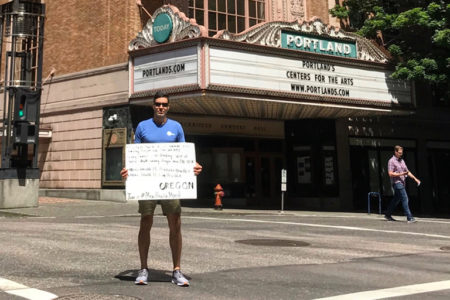
“It was tiring,” Canales said. “I mean, it’s just you know it was really, really exhausting. What I really tried to do was just to travel 9,000 miles and stay in a different hotel every night. It really takes you out of your comfort zone.
“I am so glad that I did it because I am a better men’s health advocate as a result of it, and Blue Cure is better positioned to do some incredible things that really will affect change. It was very eye-opening, and there were some things that I got from the experience that I didn’t quite expect.”
He completed this journey during the summer of 2019, stopping in over 40 cities.
Even with the progress he’s made, Canales says there is still a lot of work to be done in creating a culture of proactive men’s health awareness; he says there are brighter days ahead.
“I do believe that times are changing, where you do find that younger men are becoming open with discussing and sharing their feelings, their fears, their thoughts,” Canales said.
“Hopefully, that will translate to younger men being much more open to seeking out healthcare solutions for concerns that they may have with their body and know that that it’s important to be proactive with your health.”
Explore More:
Latino CancerBy The Numbers
1
out of 10
Pedestrians survive when hit by a car at 40 MPH
This success story was produced by Salud America! with support from the Robert Wood Johnson Foundation.
The stories are intended for educational and informative purposes. References to specific policymakers, individuals, schools, policies, or companies have been included solely to advance these purposes and do not constitute an endorsement, sponsorship, or recommendation. Stories are based on and told by real community members and are the opinions and views of the individuals whose stories are told. Organization and activities described were not supported by Salud America! or the Robert Wood Johnson Foundation and do not necessarily represent the views of Salud America! or the Robert Wood Johnson Foundation.


